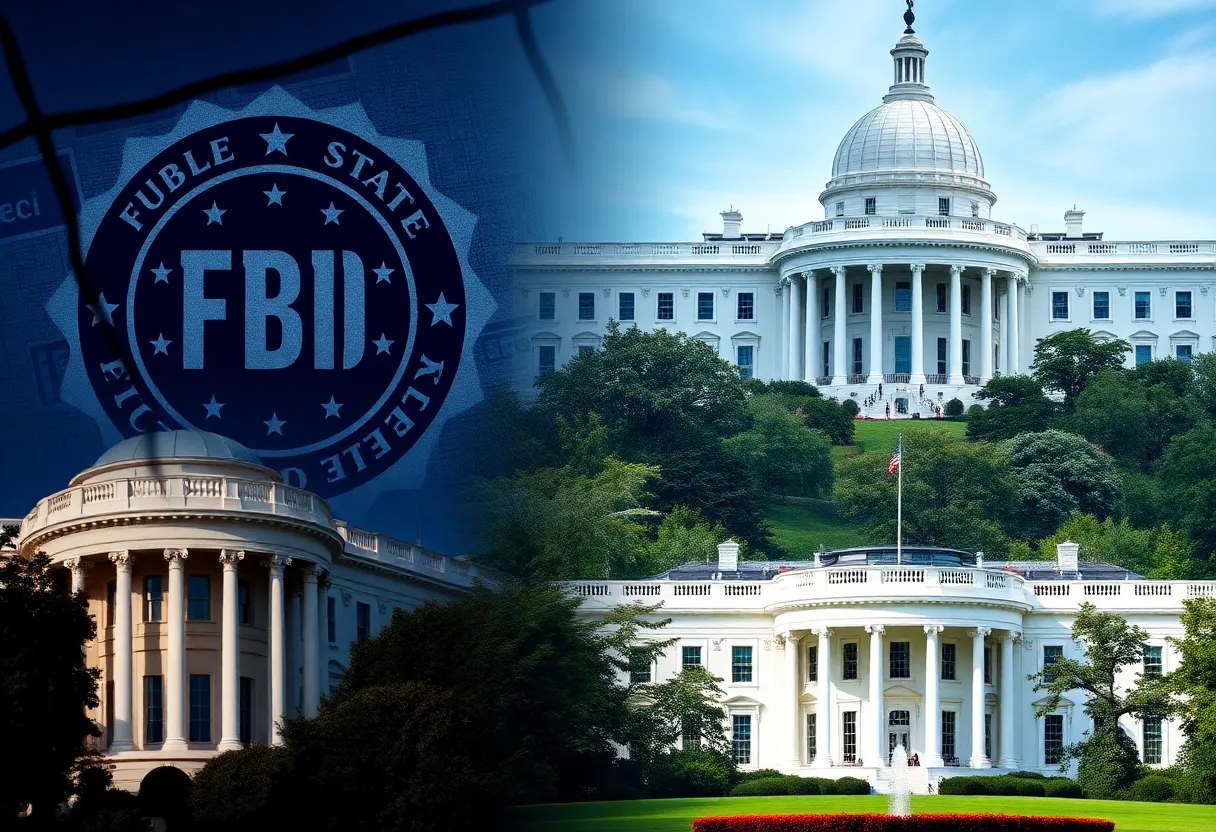News Summary
A new report reveals that the FBI allegedly did not thoroughly investigate Hillary Clinton’s use of a private email server. Declassified documents show significant oversights in the inquiry, where critical data related to national security was barely analyzed. Confidential sources provided sensitive information that the FBI opted not to scrutinize, raising concerns about potential bias and due diligence. Senator Chuck Grassley has called for transparency regarding the implications of these investigative failures on national security and public trust in law enforcement.
Washington, D.C. – A new report has revealed that the Federal Bureau of Investigation (FBI) allegedly “failed to fully investigate” former Secretary of State Hillary Clinton’s use of a private email server, raising serious concerns about the agency’s investigative processes during her time in office. Declassified documents made public by Senate Judiciary Committee Chairman Chuck Grassley indicate that significant oversights occurred in the FBI’s handling of the inquiry into Clinton’s email usage, particularly involving critical data allegedly pertinent to national security.
According to the released documents, a confidential source had provided the FBI with thumb drives containing State Department emails and other sensitive information which were reportedly obtained through cyber intrusions, including messages from President Obama. The FBI is said to have “barely glanced” at the contents of these drives, opting not to conduct a thorough analysis due to concerns around personal data privacy. This decision has been criticized as indicative of an “extreme lack of effort and due diligence” in investigating Clinton’s handling of classified materials.
The report was generated by the then-Department of Justice Inspector General Michael Horowitz, who now serves in the same capacity at both the Federal Reserve Board and the Consumer Financial Protection Bureau. Despite the revelations, questions linger about whether the FBI has taken any further actions regarding the drives since the 2018 watchdog report was released.
During the election campaign of 2016, the FBI Cyber Division sought access to the aforementioned thumb drives but was reportedly denied, further complicating the investigation into Clinton’s email practices. Additionally, former FBI Deputy Director Andrew McCabe expressed interest in referring to these drives in relation to the probe into Russian interference in the 2016 elections; however, he too was denied access.
The content of the thumb drives reportedly held sensitive information, including communications from various U.S. governmental agencies and potentially sensitive congressional data. In July 2016, the FBI had concluded that Clinton would not face prosecution over the handling of classified information despite evidence indicating potential violations of procedures regarding secure communications.
Grassley underscored the investigation’s failures by contrasting it with a more robust inquiry into allegations of Trump-Russia collusion. He suggested that there may have been bias in the FBI’s approach to the investigations during the tenure of former Director James Comey. The documents made available also contained allegations of attempts by the Obama administration to interfere with the investigation in order to safeguard Clinton’s presidential candidacy.
Grassley has reiterated the demand for transparency, urging a comprehensive review of the implications of the investigation on national security. He emphasized the importance of obtaining a clear understanding of how the FBI conducted its inquiry and the impact it may have had on the public trust in law enforcement agencies.
The investigation surrounding Clinton’s use of a private email server continues to dominate discussions about accountability and transparency in government, all while the fallout from the various political investigations remains a point of contention in U.S. politics. As of now, the information released raises critical questions for the FBI regarding its past actions and future investigations, signaling a need for vigilance in maintaining the integrity of national security protocols.
Deeper Dive: News & Info About This Topic
HERE Resources
Concerns Raised Over FBI’s Investigation into Clinton’s Emails
Laurens County Schools Enhance Cybersecurity for Students
FBI and ATF Investigate Surge in Shootings in Lancaster, SC
Former Federal Reserve Advisor Arrested for Economic Espionage
Additional Resources
- Fox News
- Wikipedia: Hillary Clinton Email Controversy
- NDTV
- Google Search: Hillary Clinton email investigation
- Newsweek
- Google Scholar: Hillary Clinton email investigation
- News18
- Encyclopedia Britannica: Hillary Clinton email investigation
- Indian Express
- Google News: FBI Hillary Clinton email investigation
Author: STAFF HERE CLINTON
The CLINTON STAFF WRITER represents the experienced team at HEREClinton.com, your go-to source for actionable local news and information in Clinton, Laurens County, and beyond. Specializing in "news you can use," we cover essential topics like product reviews for personal and business needs, local business directories, politics, real estate trends, neighborhood insights, and state news affecting the area—with deep expertise drawn from years of dedicated reporting and strong community input, including local press releases and business updates. We deliver top reporting on high-value events such as the Festival of Discovery, Clinton Community Day, and performances at the Whitten Center Amphitheater. Our coverage extends to key organizations like the Clinton Area Chamber of Commerce and the Laurens County Historical Society, plus leading businesses in manufacturing and education that power the local economy such as Milliken & Company and Presbyterian College. As part of the broader HERE network, including HEREAiken.com, HEREBeaufort.com, HEREChapin.com, HERECharleston.com, HEREClinton.com, HEREColumbia.com, HEREGeorgetown.com, HEREGreenwood.com, HEREGreenville.com, HEREHiltonHead.com, HEREIrmo.com, HEREMyrtleBeach.com, HERENewberry.com, HERERockHill.com, and HERESpartanburg.com, we provide comprehensive, credible insights into South Carolina's dynamic landscape.






